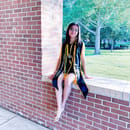We live in a difficult time. Getting along with people who hold different beliefs than us has always been difficult — there’s a reason we wonder why we all identify with the “awkward Thanksgiving dinner with the family” meme.
But in the digital age, it’s harder than ever before to find respect and kindness because the world is ripe for a heated argument.
Thanks to social media, we’re connected to news feeds 24/7, and the algorithms on Instagram and Facebook show us content — often political — that we already agree with. Additionally, instant messaging means we can spit out angry words that we may regret later. And, frequently, the arguments that started on our devices bleed over into real life. Instead of debating an anonymous person on YouTube, we realize that we’re debating our friends, our family — real people.
And these conversations, though uncomfortable and hard, are important! We need to feel safe enough to share our beliefs with others, while also giving them the same safety to share their views. It’s a fine line to walk, and if we’re not careful, we can quickly descend into chaos and arguing. Today, I wanted to share some tips that have personally helped me have difficult discussions while staying calm and kind.
- Really, truly listen.
-
Make a good faith effort to understand the other person’s perspective. We have to stop making up clever arguments in our heads and start making room to listen!
- Imagine the other person’s experience.
-
We all have our own libraries of past experiences. Our views are largely a result of these past histories and it’s easy to cast judgment on someone when you assume their history is similar to your own. For instance, I personally have never had issues with social media. But if my friend is vehemently against social media or being in any pictures, I might assume that she’s just paranoid, overly worrisome, etc. But maybe she has a negative history with social media – maybe she experienced cyberbullying, hacking, or depression related to social media. These are all understandable reasons as to why she’d be against using social platforms. But unless I knew this history, or at least tried to imagine her history, I would have made unfair judgments of her.
- Remember to be kind.
-
I think it’s a natural tendency to mentally vilify people with opposing views. We like to think that there’s always a “good” and “bad” person in a situation — a hero and a villain. I’ve had several conversations with people who I expected would attack my views, but when I took a sincere interest in their perspective and treated them with respect, they reciprocated the same respect to me. Kindness is the foundation of civil discourse. If we only respect others when they think the same way we do, we’ll never reach a place of civility — we’ll never all agree!
- But, also remember to set boundaries.
-
Draw limits, conserve your energy, and don’t give in to pressure to conform to others’ views just out of peer pressure. We all should do our best to be polite and — when we need to — agree to disagree. But if you are doing everything you can to be kind while the other person refuses to return basic respect for you, you need to step away. Don’t waste time trying to have a respectful conversation with someone who just wants to pick a fight. A former teacher of mine once said it this way: “If someone won’t respect you, tell them, ‘I’m sorry, I can’t allow you to talk to me this way’ — and walk away.”
I hope one of these tips gave you an idea for handling that next difficult discussion you run into. Let’s always remember that winning an argument while destroying a relationship is like winning a battle but losing the war. In every conversation, we have a unique opportunity to show kindness, compassion and civility — even in the midst of disagreement.



